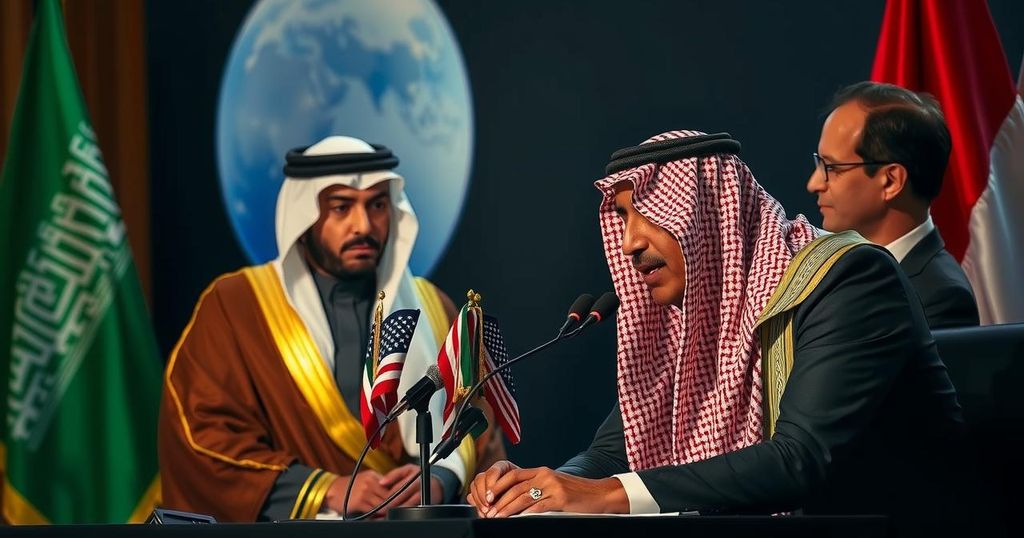Saudi Arabia and the UAE, along with other Middle Eastern countries, have condemned Israel’s military strikes on Iran as violations of international law. In response to Israel’s actions following the Iranian ballistic missile attack, these nations called for restraint and diplomatic resolutions to maintain regional stability.
Recently, Saudi Arabia and the United Arab Emirates (UAE), alongside other Middle Eastern nations, denounced Israel’s military strikes on Iran as infringements on sovereignty and international law. This condemnation follows the Israel Defense Forces’ (IDF) declaration of having executed targeted operations against Iranian military sites, occurring shortly after Iran launched approximately 200 ballistic missiles aimed at Israel. The UAE issued a strong statement expressing grave concern over the rising tensions and their potential repercussions for regional stability. The UAE’s Ministry of Foreign Affairs urged all parties to exercise restraint and highlighted the necessity of preventing further escalation, asserting, “Exercising wisdom and avoiding actions that may expand the conflict are crucial at this time.” Similarly, Saudi Arabia reiterated its commitment against the ongoing regional escalation, calling for all involved parties to prioritize restraint and collective efforts toward de-escalation. The Saudi government also appealed to the international community and active stakeholders to take appropriate measures to alleviate tensions and halt conflicts within the region. In addition, Qatar, acting as a mediator to resolve the Gaza conflict, voiced significant concern regarding the repercussions that Israel’s actions may provoke. Oman condemned the airstrikes, claiming that they perpetuate cycles of violence and undermine de-escalation attempts, urging the international community to halt such violations. Kuwait’s Ministry of Foreign Affairs similarly criticized Israel for jeopardizing regional security. Amidst escalating violence, the humanitarian toll has been staggering, with thousands reported killed over the past months due to ongoing military operations in the region, exacerbating an already delicate geopolitical landscape.
The tension between Israel and Iran has been a longstanding issue, fueled by regional power struggles and conflicting interests. Israel’s military actions against Iranian targets are viewed not only as a defensive measure but also as part of a larger strategy to curb Iranian influence in the region. In response, Middle Eastern nations have increasingly expressed their concerns about how such actions affect their sovereignty and regional stability. The aftermath of recent escalations, including ballistic missile launches from Iran, has raised alarms about the potential consequences of further military confrontations. This backdrop of escalating violence and humanitarian crises underscores the urgent calls for diplomatic dialogue and restraint from various nations in the region. Furthermore, the calls for collaboration and adherence to international norms reflect a collective desire among Middle Eastern nations to prevent further destabilization that could lead to broader conflicts affecting their security and wellbeing.
In conclusion, the condemnation by Saudi Arabia, the UAE, and other Middle Eastern nations of Israel’s military operations against Iran underscores a critical concern regarding sovereignty and regional stability. Their emphasis on restraint and the pursuit of diplomatic solutions reflects a widespread desire to de-escalate tensions amidst a volatile backdrop. As the humanitarian situation continues to deteriorate, the need for coherent, collaborative international efforts to address these challenges becomes increasingly pertinent. The statements from neighboring nations signal a commitment to promoting peace and preventing further conflicts, essential for fostering long-term stability in the region.
Original Source: www.business-standard.com






